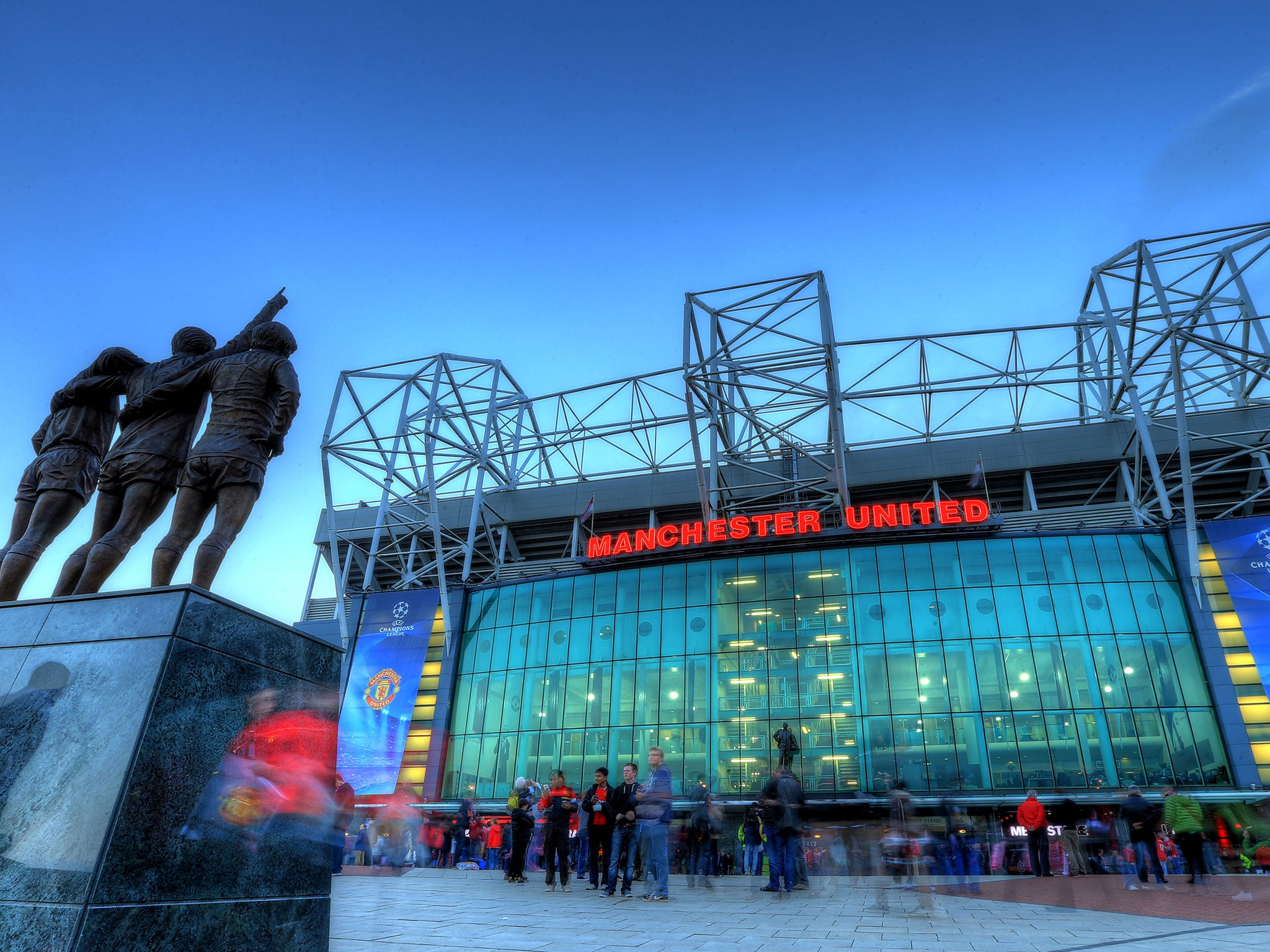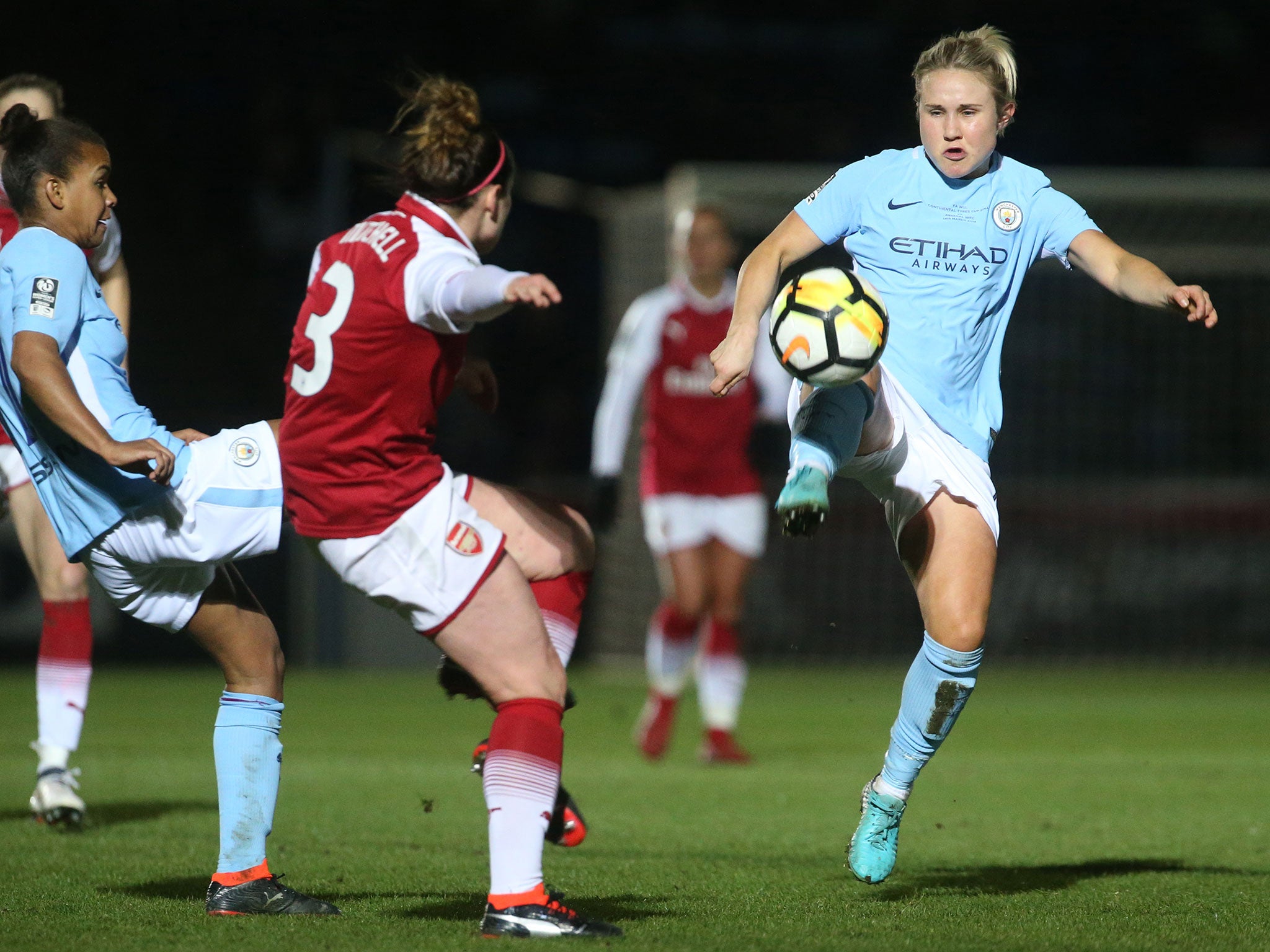Manchester United take vital step forward in announcing women's team - but there's still work to be done
At a time when gender equality is in sharp relief, United were beginning to look out of touch with the times. Today's news marks a new chapter for the women's game

Your support helps us to tell the story
From reproductive rights to climate change to Big Tech, The Independent is on the ground when the story is developing. Whether it's investigating the financials of Elon Musk's pro-Trump PAC or producing our latest documentary, 'The A Word', which shines a light on the American women fighting for reproductive rights, we know how important it is to parse out the facts from the messaging.
At such a critical moment in US history, we need reporters on the ground. Your donation allows us to keep sending journalists to speak to both sides of the story.
The Independent is trusted by Americans across the entire political spectrum. And unlike many other quality news outlets, we choose not to lock Americans out of our reporting and analysis with paywalls. We believe quality journalism should be available to everyone, paid for by those who can afford it.
Your support makes all the difference.The Football Association could be forgiven if they reached for the champagne today. A combination of quiet lobbying and bold restructuring – and maybe even the choice of Phil Neville as national coach – finally paid off when the world’s biggest football brand belatedly decided to form a football team for women.
Manchester United are not guaranteed to succeed in their application for a place in the Women’s Championship – the new part-time second tier league below the full-time Women’s Super League (in which the current champions are Manchester City). However, though there are only five available places, and around ten clubs competing for them, it can be assumed United will gain a place – their statement makes reference to the FA’s ‘excellent support’ in the process.
The team would be based at the historic Cliff training ground in Salford, where the men trained before moving out to Carrington in the late 1990s. They are likely to be full-time with executive vice-chairman Ed Woodward stating the women’s side “must be built in the same image and with the same principles as the men’s first team”.
United’s move is a significant step on the way to the women’s game becoming mainstream. The club had a team in the past, but disbanded it in 2005 when the sport was still a largely disregarded minority interest. They have maintained a well-regarded youth programme, but that has been funded through the club’s foundation, which receives much of its ring-fenced income from Premier League central funds.
Among the players who have been through their youth system is England star Izzy Christiansen, who now plays for Manchester City of all teams. Katie Zelem, now at Juventus via Liverpool, and Everton’s Gabby George, who was recently called up by England, were also on United’s books.
Among those United are competing with for a Championship licence is Lewes, whose men’s team pay in the Bostick League Division One South, tier eight, but who pay their women equally.
However, their arrival is likely to accelerate what seems an inexorable move towards all women’s teams being backed by leading men’s clubs. While Yeovil have fought on, and claimed a WSL place next season, Notts County folded last year and the other WSL1 clubs are associated with men’s Premier League or Championship clubs.

Despite growing pressure, especially since Manchester City went from a parks team to the best in Britain in less than in five years, United have hitherto resisted forming a woman’s club. It has always been felt that this is because, under the Glazers, the club are not interested in doing anything that does not make money. However, prize money is growing, albeit slowly (the Champions League winners will receive £250,000), as are commercial opportunities – Liverpool have a deal with Avon exclusive to the women’s team. Channel Four’s viewing figures for Euro 2017, in which England reached the semi-finals, peaked at four million.
In addition, at a time when gender equality is in sharp relief, United were beginning to look out of step with the times. An increasing number of major European clubs have a women’s team. In England every Premier League club has a team except Southampton, who have an under-21 side. Manchester City, Chelsea and Arsenal invest significantly; Liverpool and Everton are also in the WSL top flight with full-time teams and Tottenham in WSL2. In France Lyon’s dominance has been challenged by Paris Saint-Germain, who reached the Champions League final last year. Juventus formed a female team last year and are already one of Italy’s leading clubs. Bayern Munich and Wolfsburg are Germany’s strongest teams.

Barcelona have begun to take seriously a team that had previously bobbed along. Last year they signed current world player of the year, Martens, of the Netherlands, and England’s Toni Duggan. They sit one point clear of Atletico Madrid who at the weekend attracted 22,000 to their new Wanda Metropolitan stadium. Real Madrid are yet to start a women’s team, but the interest is there.
Atletico’s opponents in what was billed the Madrid derby wore all white – Madrid CFF were founded by a wealthy Real Madrid fan who did not want his daughter to play for Atletico, and was not prepared to wait any longer for his own club to start a women’s team.
At least now, if Harper Beckham wants to play for a team playing in Manchester red like her father, Dad won’t have to start his own.
Join our commenting forum
Join thought-provoking conversations, follow other Independent readers and see their replies
Comments